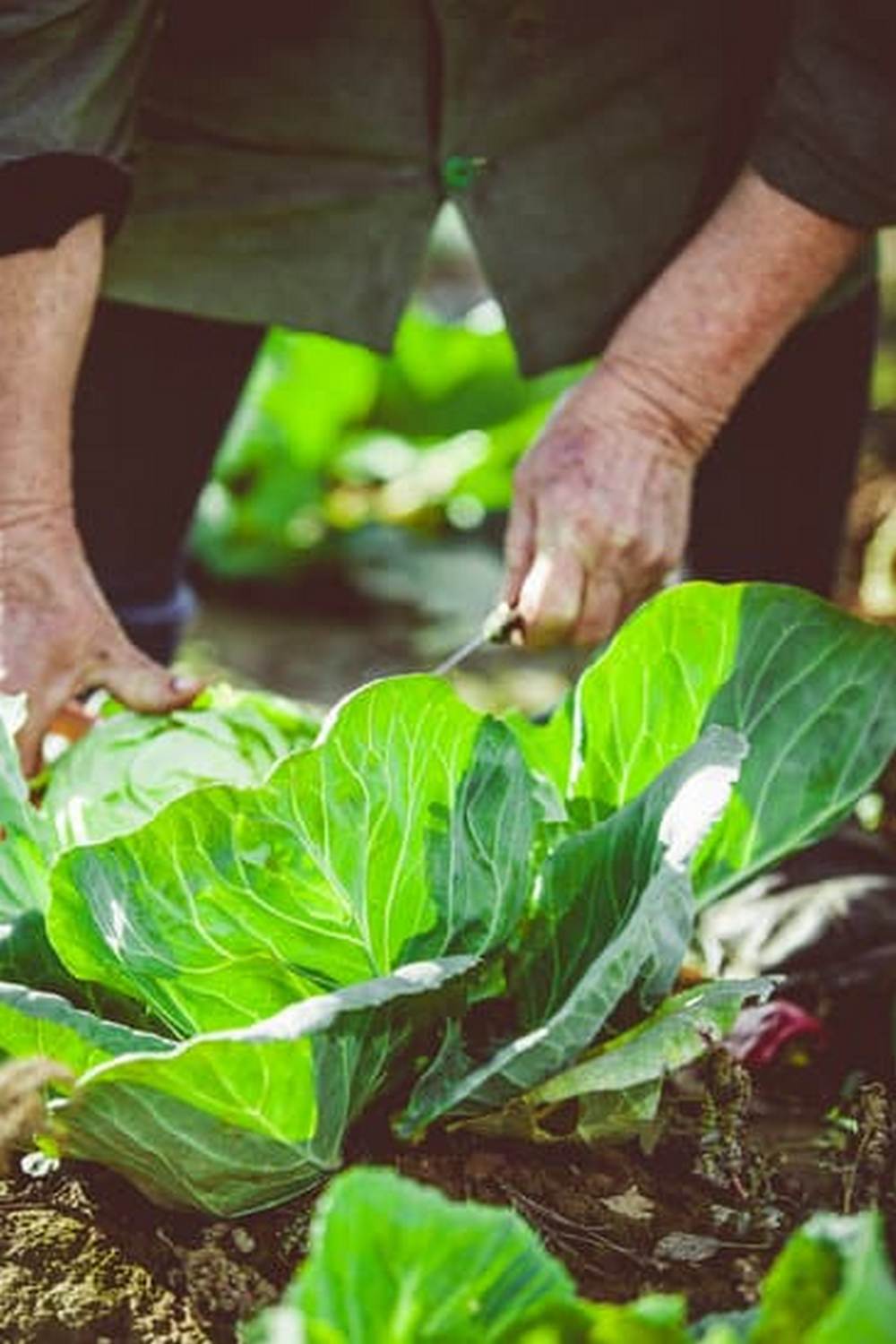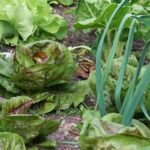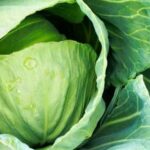Are you looking to start your own vegetable garden in Central Florida? Look no further than the Central Florida Vegetable Gardening Blog, your go-to resource for all things related to cultivating a successful garden in this region. Whether you’re a seasoned gardener or just starting out, this blog is packed with valuable information and tips to help you grow your own delicious and nutritious produce right in your backyard.
Central Florida offers an ideal climate for vegetable gardening, with plenty of sunshine and warm temperatures year-round. This unique climate allows for a wide variety of vegetables to thrive, making it a great location for anyone interested in growing their own food. From tomatoes to peppers to leafy greens, there are endless possibilities for what you can grow in your Central Florida garden.
In this blog, you’ll find guides on the best vegetables to grow in Central Florida, as well as tips and tricks for success. From soil quality to pest control to seasonal planting guides, we cover everything you need to know to ensure a bountiful harvest. Join us in embracing the Central Florida Vegetable Gardening Community and start reaping the rewards of growing your own fresh produce today.
The Ideal Climate for Vegetable Gardening in Central Florida
Central Florida is known for its warm and humid climate, making it an ideal environment for vegetable gardening year-round. The region experiences hot summers with temperatures often reaching into the 90s, as well as mild winters where frost is rare. This combination of weather conditions allows for a wide variety of vegetables to thrive in Central Florida gardens.
One of the key benefits of Central Florida’s climate for vegetable gardening is the extended growing season. With mild winters, gardeners can continue to grow vegetables throughout the winter months without the worry of frost damaging their crops. This means that staples like tomatoes, peppers, and squashes can be planted in multiple seasons, providing a continuous harvest for gardeners.
In addition to the extended growing season, Central Florida’s climate also provides ample sunlight for vegetable plants to flourish. Most vegetables require at least 6-8 hours of sunlight per day to thrive, and Central Florida’s sunny days make it easy to meet this requirement. Combined with adequate watering and soil preparation, Central Florida vegetable gardeners can enjoy a bountiful harvest throughout the year.
| Climate Characteristics | Benefits |
|---|---|
| Warm and humid | Allows for year-round gardening |
| Mild winters | Extended growing season without frost damage |
| Ample sunlight | Provides optimal conditions for vegetable growth |
Best Vegetables to Grow in Central Florida
When it comes to selecting the best vegetables to grow in Central Florida, it’s important to consider the unique climate and growing conditions of the region. With plenty of sunshine and warm temperatures throughout the year, Central Florida offers an ideal environment for a wide variety of vegetables to thrive. Whether you’re a seasoned gardener or just starting out, here are some top picks for vegetables that are well-suited for Central Florida:
- Tomatoes: Tomatoes are a popular choice for Central Florida gardeners due to their versatility and ease of growth. With proper care and attention, these plants can produce bountiful harvests throughout the growing season.
- Peppers: Peppers come in many different varieties, from sweet bell peppers to spicy chili peppers. They thrive in the warm weather of Central Florida and can be grown successfully in containers or directly in the ground.
- Squash: Varieties such as zucchini and yellow squash do particularly well in Central Florida’s climate. These fast-growing plants produce an abundance of fruit that can be enjoyed fresh or cooked in a variety of dishes.
In addition to these staple crops, other vegetables that are well-suited for Central Florida include cucumbers, beans, eggplant, and leafy greens such as lettuce and kale. By choosing vegetables that are suited to the local climate and soil conditions, you can set yourself up for a successful gardening season. Whether you have a spacious backyard garden or limited space on a balcony or patio, there are options available for every type of gardener in Central Florida.
Remember to consult resources such as the central florida vegetable gardening blog for valuable tips and advice on choosing the best vegetables for your garden. Additionally, consider joining local gardening groups or attending workshops and events to connect with other gardeners in the community. By sharing knowledge and experiences with fellow vegetable enthusiasts, you can learn new techniques and insights that will help you cultivate a thriving garden full of fresh, healthy produce.
Tips for Successful Vegetable Gardening in Central Florida
Central Florida offers a unique climate that can be both rewarding and challenging for vegetable gardeners. To ensure success in your Central Florida vegetable garden, consider these helpful tips:
- Choose the right vegetables: Opt for heat-tolerant varieties that thrive in the warm and humid conditions of Central Florida. Some popular choices include tomatoes, peppers, cucumbers, squash, and okra.
- Plant at the right time: Central Florida’s climate allows for year-round gardening, but it’s essential to plant according to each vegetable’s specific growing season. Consult a planting guide or calendar to ensure proper timing.
- Provide adequate water and sunlight: With the intense heat in Central Florida, it’s crucial to water your vegetable garden regularly and provide sufficient sunlight for proper growth. Consider using mulch to retain moisture and protect plants from the sun.
In addition to these tips, engaging with the Central Florida Vegetable Gardening Blog can provide valuable insights and advice from experienced local gardeners. This online community is a valuable resource for sharing knowledge, troubleshooting common issues, and discovering new gardening techniques specific to the region. Don’t hesitate to join the conversation and learn from fellow enthusiasts who understand the unique challenges and rewards of vegetable gardening in Central Florida.
Ultimately, successful vegetable gardening in Central Florida requires patience, dedication, and a willingness to adapt to the nuances of the local climate. By following these tips and tapping into resources like the central florida vegetable gardening blog, you’ll be well on your way to enjoying a bountiful harvest year-round in your own backyard oasis.
Importance of Soil Quality in Central Florida Vegetable Gardening
Soil quality is a crucial factor in the success of vegetable gardening, especially in Central Florida. The type of soil and its nutrient composition can greatly impact the growth and yield of your vegetables. Central Florida vegetable gardeners need to pay special attention to their soil quality to ensure healthy and thriving plants.
Testing Your Soil
Before planting your vegetables, it is important to test your soil to determine its pH level and nutrient content. You can purchase DIY soil testing kits or send samples to a lab for more detailed analysis. Knowing the pH level of your soil will help you determine which vegetables will thrive best in your garden. Additionally, understanding the nutrient content will allow you to make necessary amendments to improve soil quality.
Amending Your Soil
Once you have tested your soil, you may need to amend it to create the ideal growing environment for your vegetables. Common amendments for Central Florida soils include adding organic matter such as compost or manure, as well as incorporating other nutrients like nitrogen, phosphorus, and potassium. Regularly adding compost or other organic matter can help improve soil structure, water retention, and nutrient availability for your plants.
Maintaining Soil Health
In addition to testing and amending your soil before planting, it is important to maintain its health throughout the growing season. Mulching around your plants can help retain moisture, suppress weeds, and regulate soil temperature. Avoid excessive tilling or compaction that can disrupt beneficial microorganisms living in the soil. By focusing on improving and maintaining soil quality in your Central Florida vegetable garden, you can set yourself up for successful harvests year after year.
Pest Control and Disease Prevention in Central Florida Vegetable Gardens
Pest control and disease prevention are essential aspects of maintaining a thriving vegetable garden in Central Florida. The warm and humid climate of the region can create favorable conditions for pests and diseases to thrive, which is why gardeners need to be proactive in their approach to prevent infestations and plant illnesses. One valuable resource for Central Florida gardeners looking to tackle these challenges is the Central Florida Vegetable Gardening Blog.
The Central Florida Vegetable Gardening Blog offers a wealth of information on identifying common pests and diseases that affect vegetables grown in the region. By regularly checking the blog for updates and tips, gardeners can stay informed about potential threats to their crops and learn effective methods for prevention and control. Additionally, the blog may provide insights into organic and environmentally-friendly solutions to pest problems, promoting sustainable gardening practices.
In addition to utilizing the resources provided by the Central Florida Vegetable Gardening Blog, gardeners can implement proactive measures to minimize pest infestations and disease outbreaks in their gardens. Practices such as crop rotation, proper spacing between plants, regular inspection of foliage for signs of damage, and maintaining healthy soil through composting can help create a less hospitable environment for pests and diseases.
By combining these strategies with the knowledge shared by the blog, Central Florida vegetable gardeners can effectively protect their crops and maximize their harvest yields.
| Central Florida Pest Control Tips | Central Florida Disease Prevention Strategies |
|---|---|
| Regularly inspect plants for pest infestations | Practice crop rotation to reduce disease incidence |
| Use companion planting techniques to repel pests | Avoid watering leaves to prevent fungal infections |
| Introduce beneficial insects as natural predators | Mulch around plants to deter soil-borne pathogens |
Seasonal Planting Guide for Central Florida Vegetable Gardens
Florida’s unique climate offers a diverse range of growing seasons for vegetables, making it an ideal location for year-round gardening. For Central Florida vegetable gardeners, understanding the seasonal planting guide is essential to maximize their harvests throughout the year. By following a tailored planting schedule, gardeners can take advantage of the different growing conditions each season brings.
In Central Florida, the fall and winter months provide cool temperatures that are favorable for root vegetables like carrots, radishes, and beets. These crops thrive in the milder weather, allowing gardeners to enjoy their harvest during the holiday season. As spring approaches, warm-season vegetables such as tomatoes, peppers, and cucumbers become popular choices for planting in Central Florida gardens. The longer days and warmer temperatures create optimal conditions for these heat-loving crops to flourish.
As summer arrives in Central Florida, gardeners can benefit from planting heat-tolerant vegetables such as okra, sweet potatoes, and melons. With proper care and attention to watering needs, these summer crops can withstand the scorching temperatures common in this region. By following a well-planned seasonal planting guide that aligns with Central Florida’s climate patterns, vegetable gardeners can ensure a bountiful harvest year-round while minimizing potential challenges associated with growing in a subtropical environment.
For more detailed guidance on seasonal planting schedules and tips for successful vegetable gardening in Central Florida, be sure to visit a reputable central florida vegetable gardening blog. These online resources often provide valuable insights from local experts and experienced gardeners who understand the unique nuances of gardening in this region. By staying informed and connected with the central Florida vegetable gardening community through blogs and online forums, gardeners can share knowledge, troubleshoot common issues, and celebrate successes together.
Spotlight on Local Central Florida Vegetable Gardening Success Stories
Urban Farming in Downtown Orlando
One of the most inspiring success stories in central Florida vegetable gardening comes from a group of urban farmers located right in the heart of downtown Orlando. What started as a small community garden project has now transformed into a thriving urban farm that supplies fresh produce to local restaurants and markets. These dedicated individuals have shown that even in a bustling city environment, it is possible to grow an abundance of vegetables using sustainable and organic practices.
Family-Owned Farm in Winter Park
In the charming town of Winter Park, a family-owned farm has been a beacon of success when it comes to central Florida vegetable gardening. For generations, this farm has been passed down, with each family member adding their own touch to the bountiful harvest. Visitors can take guided tours of the farm, learning about traditional farming methods and innovative techniques that have allowed them to produce a wide variety of high-quality vegetables year-round.
Community Garden Initiative in Kissimmee
In Kissimmee, a community garden initiative has brought together residents from all walks of life to share their love for vegetable gardening. This project not only provides fresh produce for those involved but also fosters a sense of community and connection among neighbors. Through workshops and educational programs, participants learn how to cultivate their own vegetable gardens, leading to increased food security and sustainability within the local area.
By showcasing these local success stories in central Florida vegetable gardening, we hope to inspire others to embrace their green thumbs and contribute to the thriving gardening community. Whether you’re an urban farmer, part of a family-owned operation, or involved in a community garden initiative, there are endless possibilities for growth and innovation in vegetable gardening in central Florida.
Resources and Tools for Central Florida Vegetable Gardeners
Whether you are a novice or experienced gardener, having the right resources and tools can make a significant difference in the success of your vegetable garden in Central Florida. One valuable resource for Central Florida vegetable gardeners is the Central Florida Vegetable Gardening Blog.
This blog provides insightful tips, techniques, and information specifically tailored to the unique climate and conditions of Central Florida. From planting guides to pest control strategies, this blog serves as a valuable tool for anyone looking to optimize their vegetable garden in the region.
In addition to online resources like blogs and websites, local gardening centers and nurseries can also be excellent sources of information and tools for Central Florida vegetable gardeners. These establishments often carry a wide range of seeds, plants, fertilizers, and other essential supplies needed for successful gardening in the area. Furthermore, the staff at these stores are typically knowledgeable about local conditions and can offer personalized advice based on your specific gardening needs.
Investing in quality gardening tools is another crucial aspect of successful vegetable gardening in Central Florida. From durable shovels and trowels to irrigation systems and pruning shears, having the right tools can streamline your gardening process and ensure that your plants thrive.
Additionally, maintaining your tools properly will prolong their lifespan and effectiveness, making them a worthwhile investment for any serious gardener in Central Florida. By utilizing reliable resources and tools, you can enhance your vegetable gardening experience while maximizing your harvest yield in this unique region.
Conclusion
In conclusion, the
Central Florida’s unique climate provides opportunities for year-round gardening, and the blog highlights the best vegetables to grow in this area while offering insights on soil quality, pest control, disease prevention, and seasonal planting guides. By following the advice provided on the blog, aspiring and experienced gardeners alike can enhance their gardening skills and harvest bountiful yields.
As we continue to embrace the Central Florida Vegetable Gardening Community through our shared experiences and knowledge, let us remember that gardening is not just a hobby but a way of life that promotes sustainable living and healthy eating. The
Join us in cultivating a thriving vegetable garden community in Central Florida.
Frequently Asked Questions
What Vegetables Are Good to Plant Now in Central Florida?
In Central Florida, good vegetables to plant now include tomatoes, peppers, squash, cucumbers, and beans. These vegetables thrive in the warm climate and are best planted during the spring months.
How Often Should I Water My Vegetable Garden in Central Florida?
When it comes to watering your vegetable garden in Central Florida, it is crucial to water deeply but infrequently. Typically, a vegetable garden in this region needs about 1-1.5 inches of water per week, either from rainfall or irrigation.
Can You Garden Year Round in Central Florida?
Yes, you can garden year-round in Central Florida due to its mild climate. While the summer months can be challenging due to heat and humidity, there are still plenty of vegetables that can be grown during this time.
With proper planning, succession planting, and providing adequate shade for heat-sensitive plants, gardening year-round is definitely possible in Central Florida.

If you’re looking to get into vegetable gardening, or are just looking for some tips on how to make your current garden better, then you’ve come to the right place! My name is Ethel and I have been gardening for years. In this blog, I’m going to share with you some of my best tips on how to create a successful vegetable garden.





